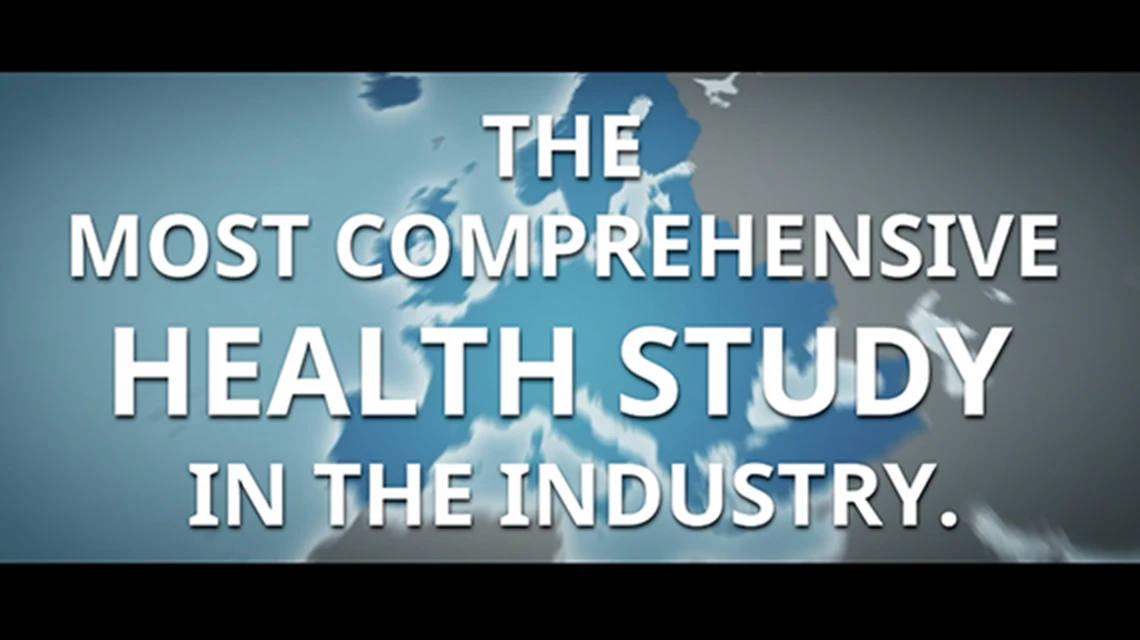Select your country
Websites worldwide
Select a country to go to the website of the respective STADA sales company.
Australia (1)
Austria (1)
Belarus (1)
Belgium (1)
Bosnia-Herzegovina (1)
Bulgaria (1)
China (1)
Croatia (1)
Czech Republic (2)
Denmark (1)
France (1)
Hungary (1)
Ireland (1)
Italy (1)
Montenegro (1)
Netherlands (2)
Poland (1)
Portugal (1)
Romania (1)
Serbia (1)
Slovakia (1)
Slovenia (1)
Spain (1)
Switzerland (1)
Thailand (1)
The Phillippines (1)
United Kingdom (3)
Vietnam (2)
News
- 19/09/2023
- Press Release
STADA Health Report 2023: A Lack of Prevention Is Eroding Europeans’ Health
- STADA Health Report 2023: representative survey of around 32,000 respondents in 16 European countries shows that Europeans' preventive healthcare falls short
- Majority of Europeans do not undergo adequate preventive check-ups; economic conditions force Europeans to cut back on healthcare spending; satisfaction with healthcare systems falls for third year in a row
- “The STADA Health Report is our unique contribution to better healthcare through reliable and verified data and delivers directly on our purpose of Caring for People’s Health as a Trusted Partner. The insights generated must act as a wake-up call on improving preventive health initiatives, promoting self-care, and modernizing health systems through digitization,” says Peter Goldschmidt, CEO of STADA.
Bad Vilbel, 19 September 2023 – Health prevention is fundamental to our well-being and quality of life. However, 85% of Europeans do not undergo adequate preventive check-ups – which is all the more concerning as, in addition, Europeans are tending to cut back on their health spending due to inflation.
There is also good news: over the past year, 73 percent of Europeans have taken better care of themselves to enhance their health, be it by pursuing a healthier diet or increasing their vitamin intake. Compared to 2022, mental well-being has improved by ten percentage points across the continent.
These are insights from the fifth international STADA Health Report 2023 survey of around 32,000 Europeans across 16 countries.
“The STADA Health Report is our unique contribution to better healthcare through reliable and verified data and delivers directly on our purpose of Caring for People’s Health as a Trusted Partner. The insights generated must act as a wake-up call on improving preventive health initiatives, promoting self-care, and modernizing health systems through digitization," says STADA CEO Peter Goldschmidt.
“Through many thousands of scientifically verified datapoints derived from a representative sample of 32,000 Europeans, the STADA Health Report provides parties across the healthcare spectrum with actionable insights on key issues,” added Magali Geens, Managing Director EMEA at Human8, the market-research consultancy which conducted the independent research for STADA.
Preventive healthcare: too little, too late?
Preventive care at the dentist, skin-cancer screening, check-ups at the gynaecologist: doctor's appointments tend to pile up fast. But they are usually worth the effort and can save lives. Although such tests are crucial for our health, the STADA Health Report 2023 reveals that Europeans need to take the issue more seriously.
Four in ten Europeans (42 percent) do not attend any preventive health check-ups, and only 15 percent can confidently say they attend all relevant appointments. The Netherlands, with 32 percent attending all relevant preventive care appointments, and the UK, with 31 percent, are setting more positive examples. By contrast, Serbia and Poland (62 percent each) and Romania (60 percent) are running in the opposite direction: almost 2 in 3 people in these countries do not get any check-ups. Surprisingly, there is no significant age-related variation; attendance only increases slightly from the age of 44. However, there are differences between the sexes: European men (53 percent) are less likely to attend all or at least some preventive check-ups than women (62 percent).
Indeed, just one in ten (10 percent) of men undergo testicular-cancer screening, while only half of women (50 percent) attend breast-cancer tests. More encouragingly, more than two in three (68 percent) attend gynecological examinations, and almost half (46 percent) of men aged over 55 years attend prostate screenings.
Lack of awareness and money hinder prevention
But what keeps Europeans from having preventive medical check-ups? For most, a lack of education or knowledge (32 percent) is the biggest obstacle. This is true not only of those who report having no, only a little, or some knowledge of health in general (33 percent each) but also for those who claim to have considerable health-related knowledge (28 percent). The cost of preventive healthcare is another primary reason for 1 in 4 Europeans (23 percent) not attending all check-ups – in Romania (42 percent) and Serbia (38 percent) healthcare bills are even the main factor. This is the case for many Europeans who are financially struggling or careful (31 percent) – but surprisingly also for nearly 1 in 5 Europeans (19 percent) who feel in control of or comfortable with their finances. Another 22 percent consider screenings unnecessary, and 16 percent find it difficult to make time for them.
Every cloud has a silver lining – or does it?
In recent years, one crisis seems to follow the next: we just made it past Covid, and now war, inflation, and dissatisfaction with healthcare systems follow. Today, 61 percent of Europeans are generally satisfied with the healthcare system in their country. This is the third consecutive year of a significant decline in overall satisfaction with healthcare systems in Europe – a trend that needs further exploration and addressing: not only to improve care but also to motivate Europeans to take more responsibility for their own health.
Concerns about medicine supply shortage
Europeans are increasingly worried and concerned: 45 percent are afraid of wars and geopolitical conflicts. The tense supply situation for medicines caused nearly 1 in 4 (24 percent) to worry about having access to necessary medication in the future.
Almost two in five (39 percent) Europeans see the issue of medicine shortages as critical, including 18 percent who say they have first-hand experience of difficulties getting the treatments they or a loved one needed. Medicine supply shortages are perceived as a particular cause for critical concern in Portugal (56 percent), the Czech Republic (53 percent) and Germany (50 percent). At the same time, the younger Europeans are, the more likely they are to forgo spending on medication. This applies to 19 percent of 18 to 24-year-olds, but only 7 percent of Europeans aged over 70.
While many Europeans fear a lack of medicines, many are prepared to use supplements to support healthy lifestyles. More than one in four (27 percent) of Europeans surveyed say they have increased their vitamins intake over the past 12 months, while one in five (19 percent) are taking more medicines, and 16 percent are seeking more advice from their pharmacist. Turning to vitamin supplements is particularly popular among Serbians (52 percent), while 39 percent of people in France say they are asking for more health advice from a local pharmacy.
Views vary on pharmacy vaccinations
Getting vitamin status measurements in their local community pharmacy is of interest to two in three Europeans (67 percent), including to 77 percent of adults in Italy and Serbia. But the 32,000 survey participants are somewhat divided when it comes to the issue of whether pharmacies are a suitable location to top up their immunizations. For one in four Europeans (24 percent), this is a must, while another 38 percent feel vaccinations represent a service pharmacists could offer. The three-fifths (61 percent) of people who are in principle open to receiving vaccines in pharmacy was virtually unchanged from when the same question was posed in 2022.
However, there are wide variations in national attitudes to this issue. For more than half of people in France (52 percent), as well as a large proportion of adults in the UK (42 percent) and Italy (40 percent), it is essential that pharmacies offer vaccination among their services. But this figure dropped to just 9 percent in Germany and Kazakhstan, 6 percent in Serbia and a mere 4 percent in the Czech Republic.
Mental health is on the rise
When it comes to discussing their fears and worries, just 2 percent of Europeans say they would talk to their pharmacist, while 13 percent would consult their general practitioner. A degree of reticence even relates to partners, friends and family, with fewer than half of Europeans confiding in those closest to them.
Our physical and mental well-being are inseparably linked to each other. Today, 67 percent of Europeans rate their mental health as “good” or “very good”, and less than 1 in 10 as “poor”. In 2022, ratings were considerably lower, with only 57 percent rating their psychological state as “good” or “very good”. Compared to women (62 percent), nearly 3 in 4 men (73 percent) describe their mental health as good. On the other hand, only 56 percent of Europeans who are financially careful or struggling rate their mental health as good.
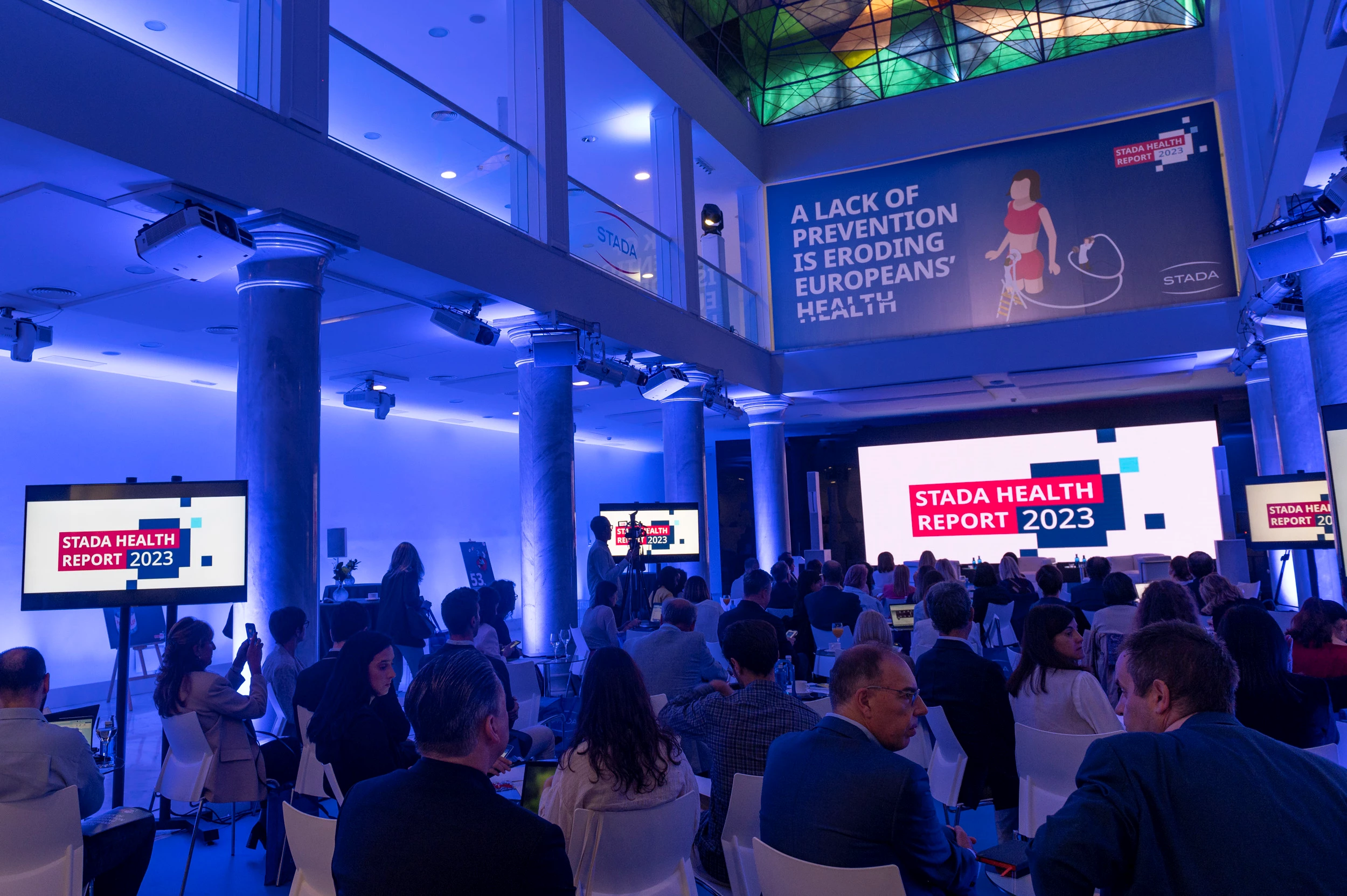
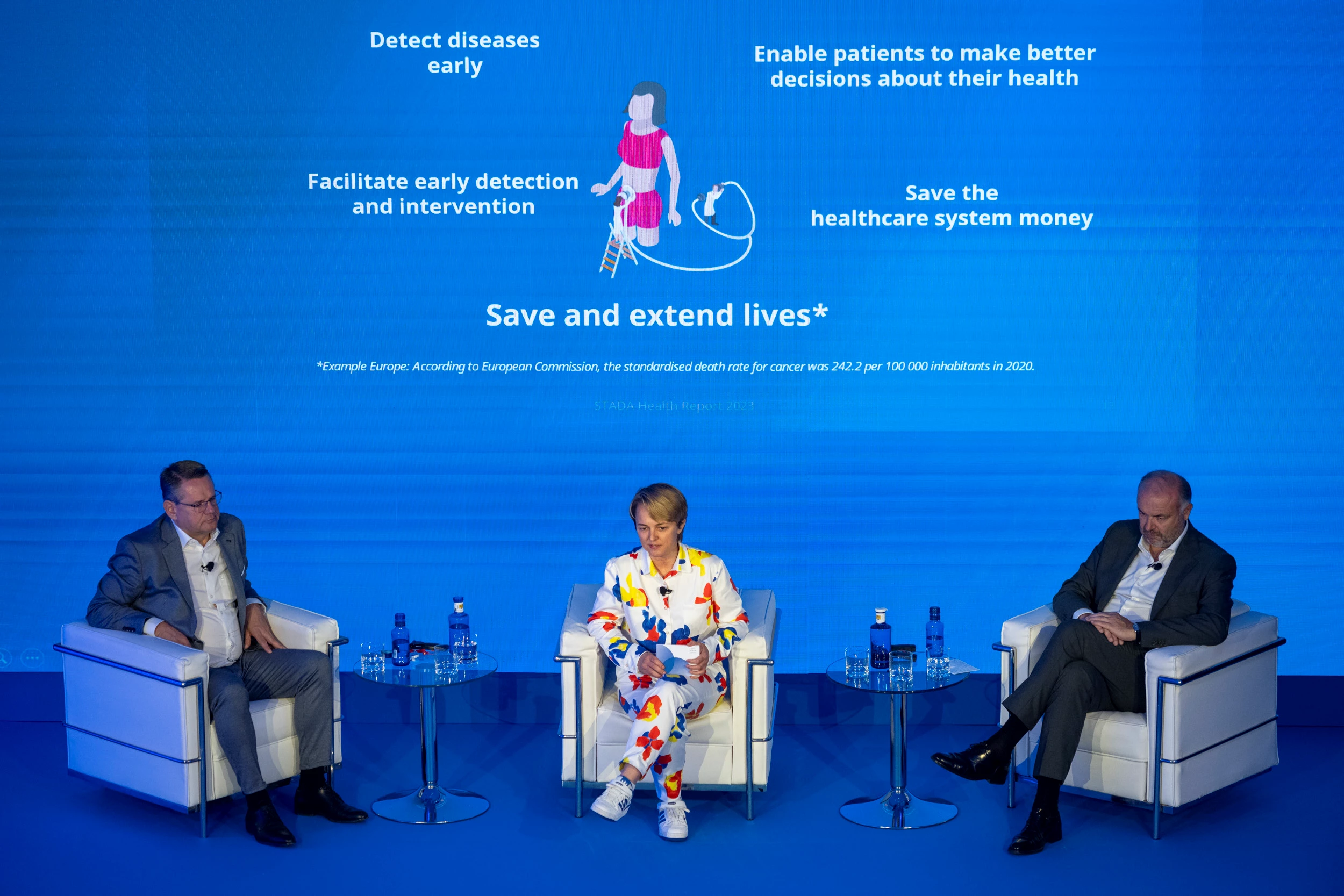
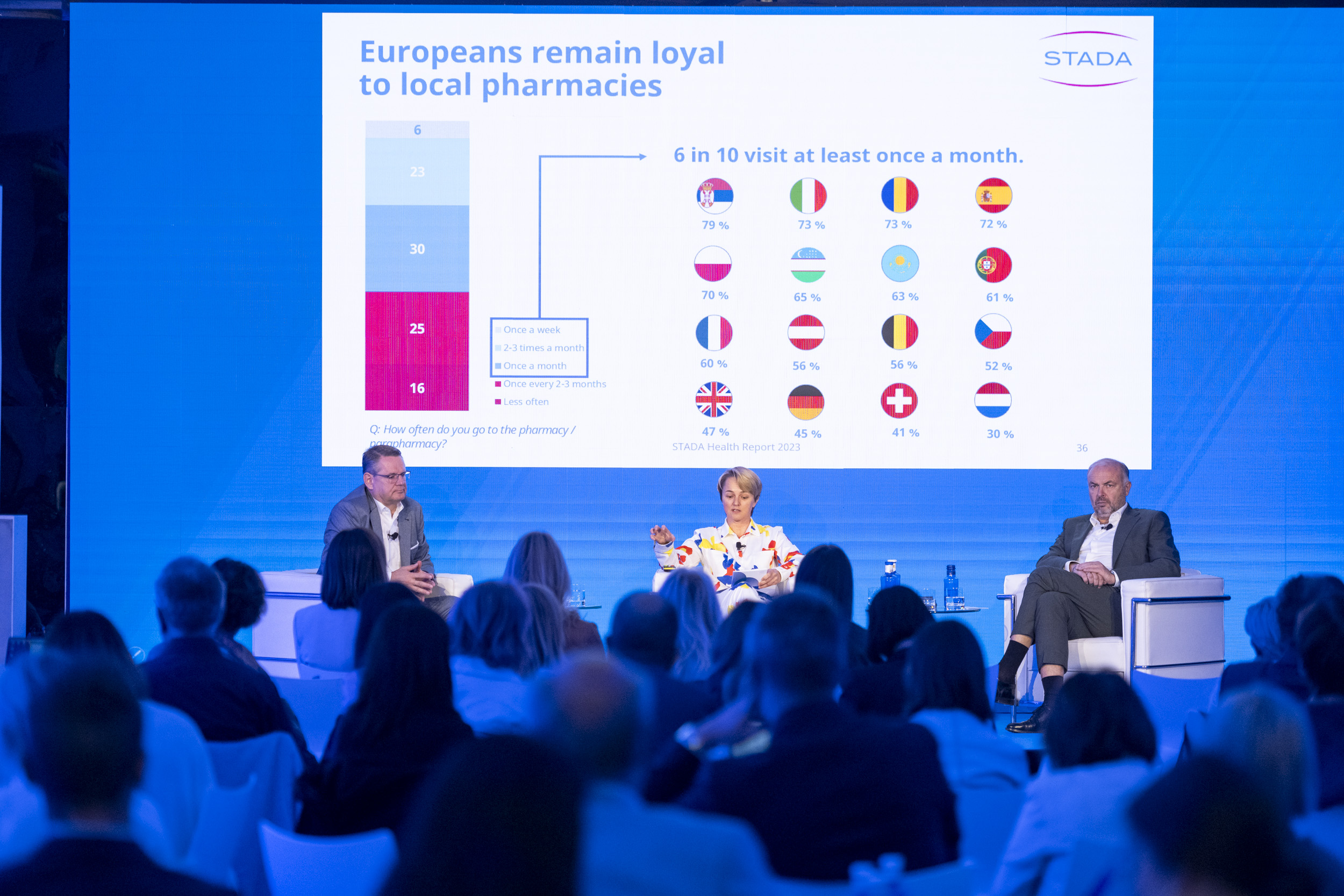
© photos: Goyo Conde
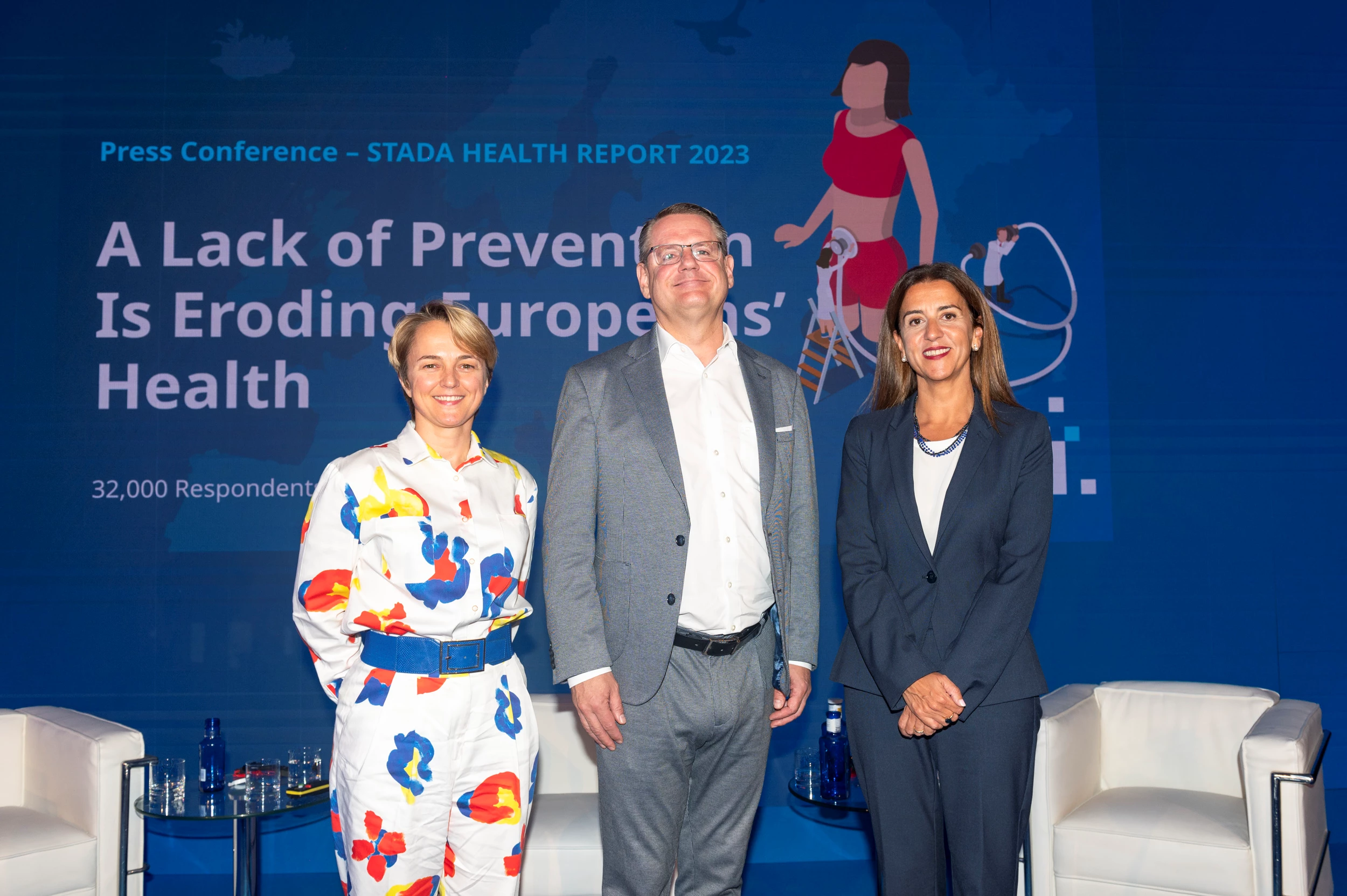
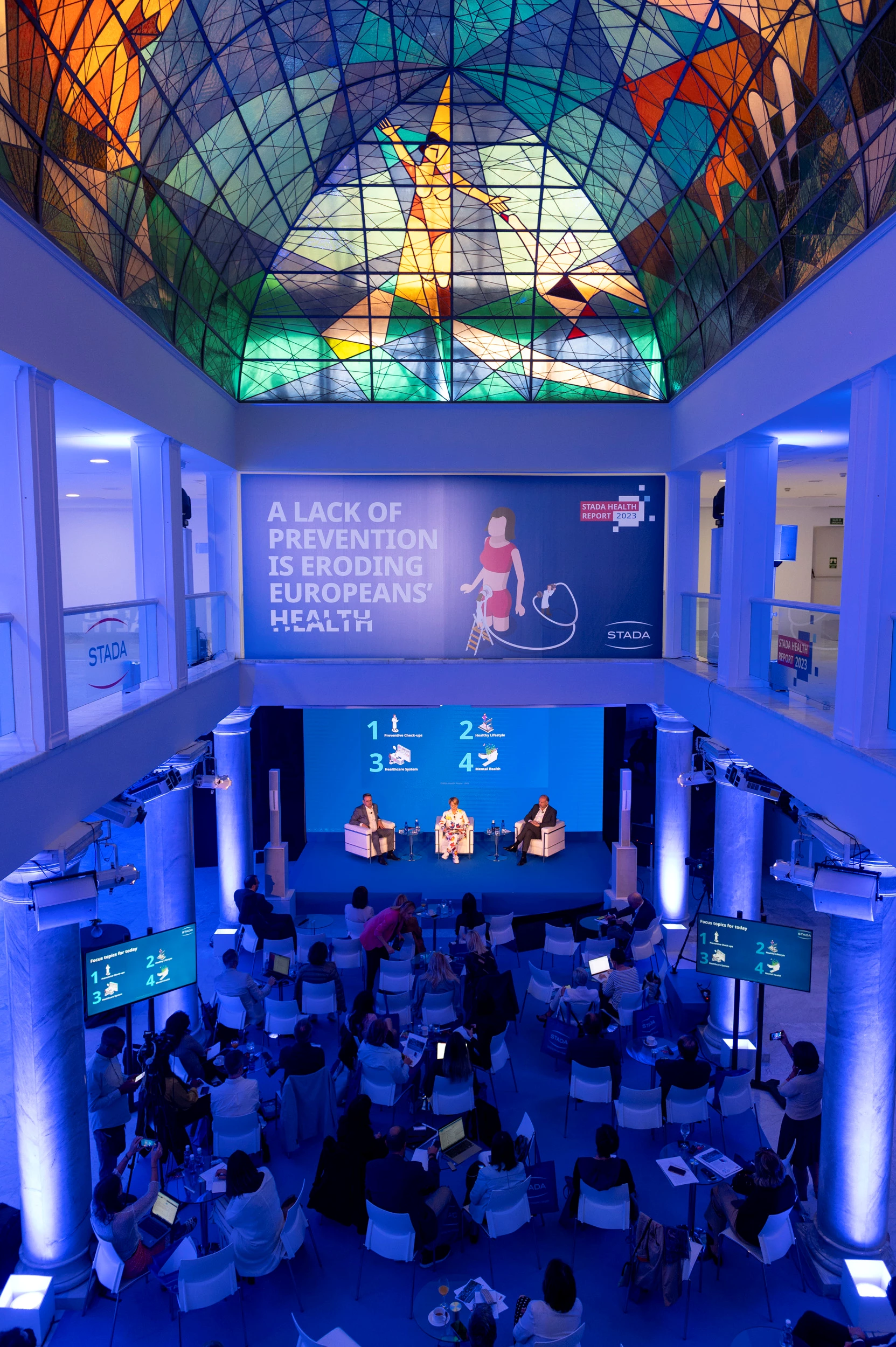
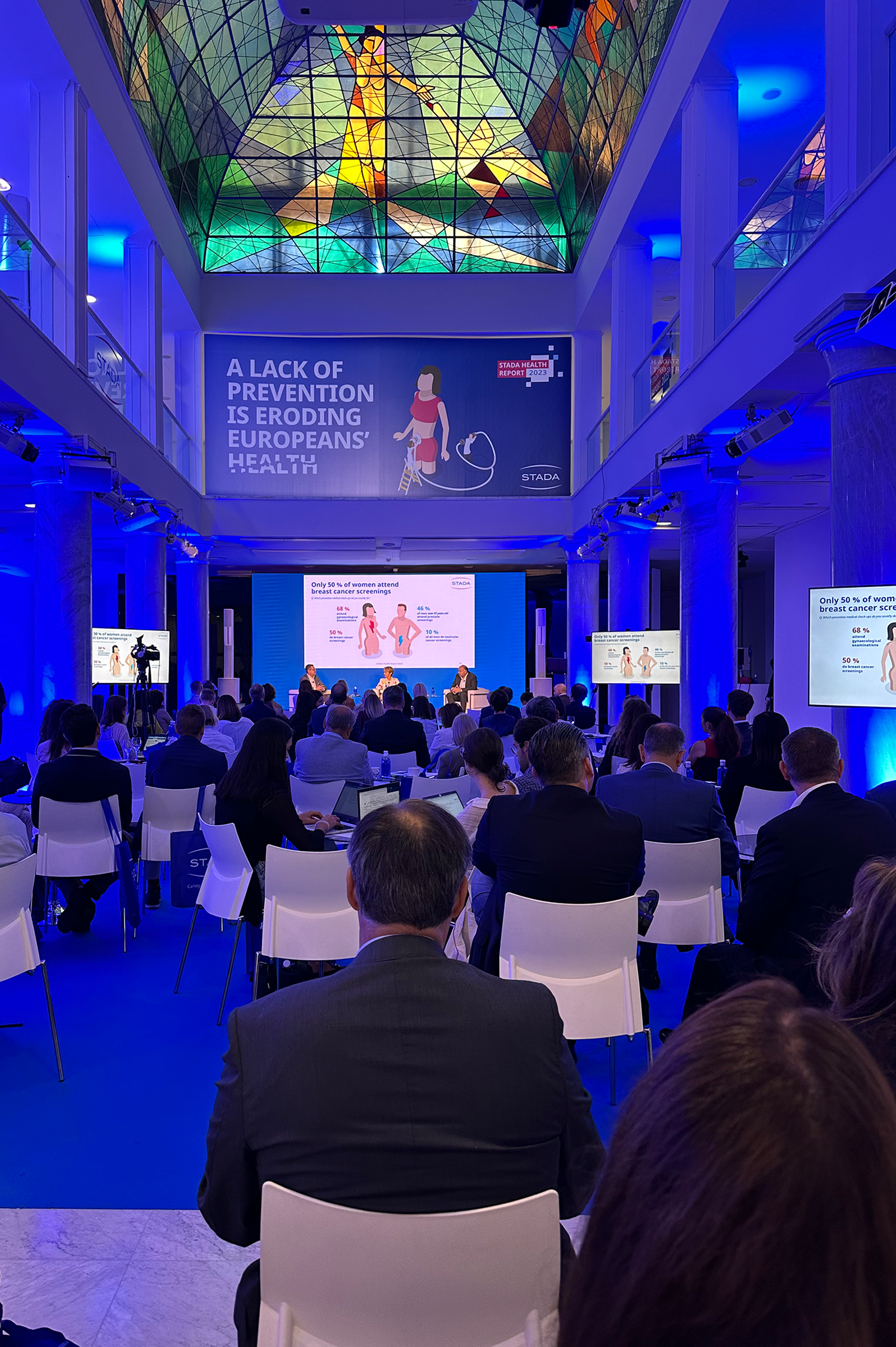
STADA Health Report
Representative online study by Human8 on behalf of STADA.
Research time frame: March through April, UZB July 2023. Sample: Around 2,000 respondents each from Austria, Belgium, the Czech Republic, France, Germany, Italy, Kazakhstan, the Netherlands, Poland, Portugal, Romania, Serbia, Spain, Switzerland, the United Kingdom and Uzbekistan.
About STADA Arzneimittel AG
STADA Arzneimittel AG is headquartered in Bad Vilbel, Germany. The company focuses on a three-pillar strategy consisting of generics, specialty pharma and consumer healthcare products. Worldwide, STADA Arzneimittel AG sells its products in approximately 120 countries. In the financial year 2022, STADA achieved group sales of EUR 3,797.2 million and reported earnings before interest, taxes, depreciation and amortization (EBITDA) of EUR 884.7 million. As of 31 December 2022, STADA employed 13,183 people worldwide.
Additional information for journalists
STADA Arzneimittel AG - Media Relations
Stadastrasse 2-18
61118 Bad Vilbel - Germany
Phone: +49 (0) 6101 603-165
Fax: +49 (0) 6101 603-215
E-Mail: [email protected]
Additional information for capital market participants
STADA Arzneimittel AG - Investor & Creditor Relations
Stadastrasse 2-18
61118 Bad Vilbel – Germany
Phone: +49 (0) 6101 603-4689
Fax: +49 (0) 6101 603-215
E-mail: [email protected]
-
Download in PDF format
- Share



